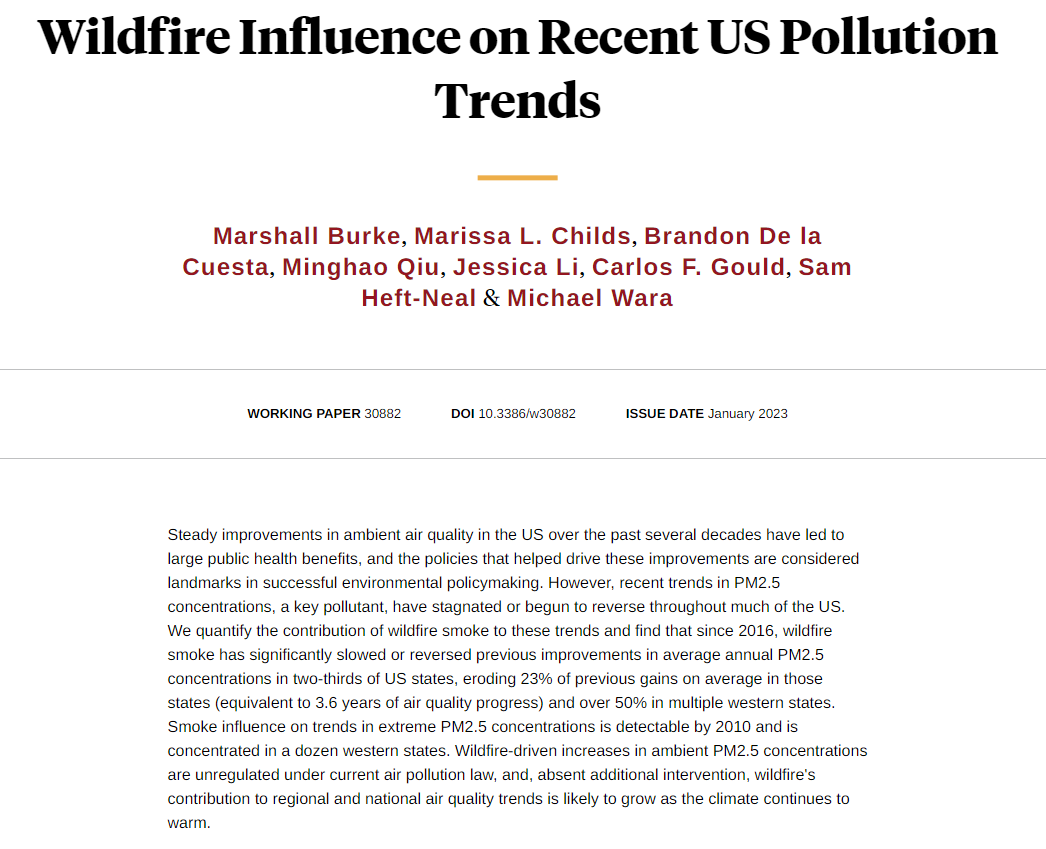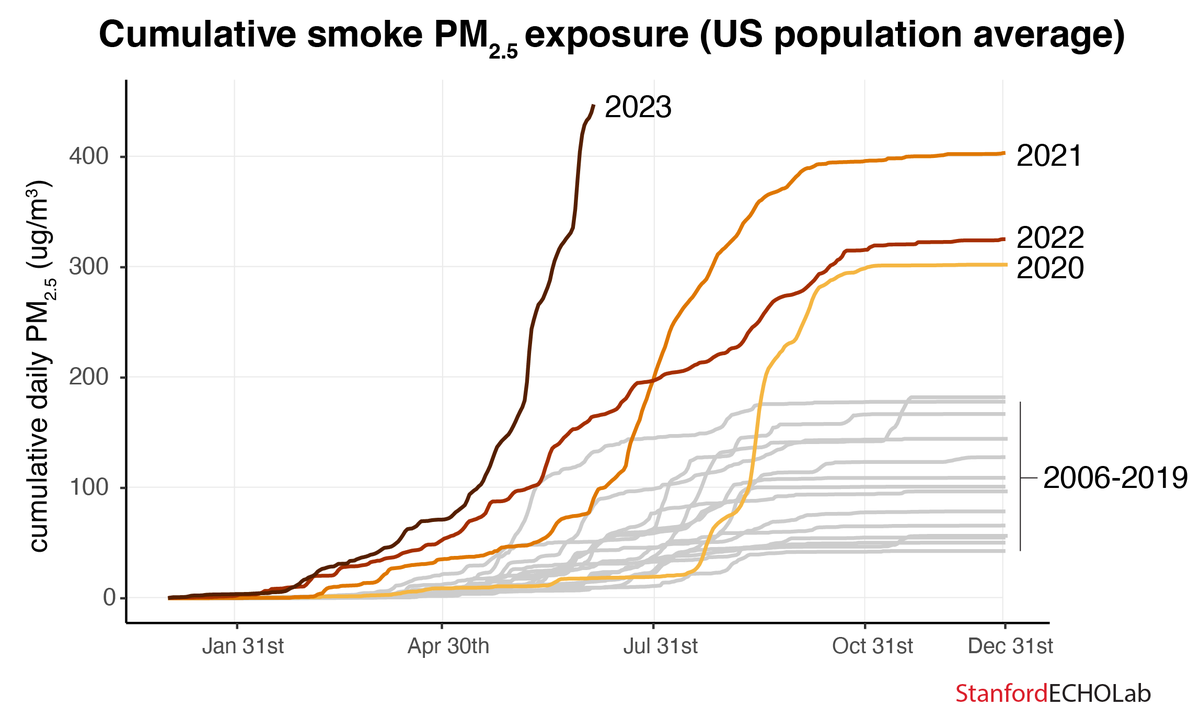
StanfordECHOLab
@stanfordecholab
Research update from the Stanford Environmental Change and Human Outcomes Lab stanfordecholab.com
ID: 1443074363218010113
29-09-2021 04:45:38
63 Tweet
471 Followers
21 Following

Great paper by Minghao Qiu on how to correct for meteorology when studying air quality impacts

We have a new paper + dataset out today measuring daily wildfire smoke PM2.5 across US back to 2006, expertly led by Marissa Childs StanfordECHOLab . Below is an animation of 2020 data. paper: doi.org/10.1021/acs.es… data: stanfordecholab.com/wildfire_smoke Quick thread below





Improvements in air quality are slowing or being reversed in the US, and wildfires are substantially to blame, from Marshall Burke, Marissa L. Childs, Brandon De la Cuesta, Minghao Qiu, Jessica Li, Carlos F. Gould, Sam Heft-Neal, and Michael Wara nber.org/papers/w30882


For those interested in evidence on the air quality and health benefits of transitioning from gas to electric cooking, check out these two new pre-prints lead by Carlos Gould. Both suggest large benefits using designs that improve on what's in literature. Quick 🧵



For the average American, we StanfordECHOLab calculate that cumulative smoke exposure (PM2.5 exposure on each day, summed across days) through mid-2023 is already way worse than total cumul exposure in every year since 2006. And main fire season in West is just getting started.


Couple of wildfire papers out from our echo lab group this week. First one out yesterday, expertly led by Sam Heft-Neal StanfordECHOLab , on smoke effects on emergency dept visits in California. Some surprises! Quick thread ttps://www.pnas.org/doi/10.1073/pnas.2302409120


Startling new study from Marshall Burke, Michael Wara and company finds that wildfire smoke has slowed down air-quality progress in 30 states and reversed progress in 11 others. The worsening air pollution is especially bad in the West: washingtonpost.com/climate-enviro…


New working paper on climate, wildfire smoke, and mortality, expertly led by Minghao Qiu StanfordECHOLab . We find that by mid-century in the US, damages from mortality from wildfire smoke are about equal to the sum of all other climate damages in recent estimates 🧵

Announcing v2 of our climate adaptation conference at Stanford, this Oct 10-11. Please submit! Looking for empirical work on adaptation & will consider earlier-stage working papers as well as more polished work. Submission deadline July 15. Plz share, RT gsb.stanford.edu/faculty-resear…



